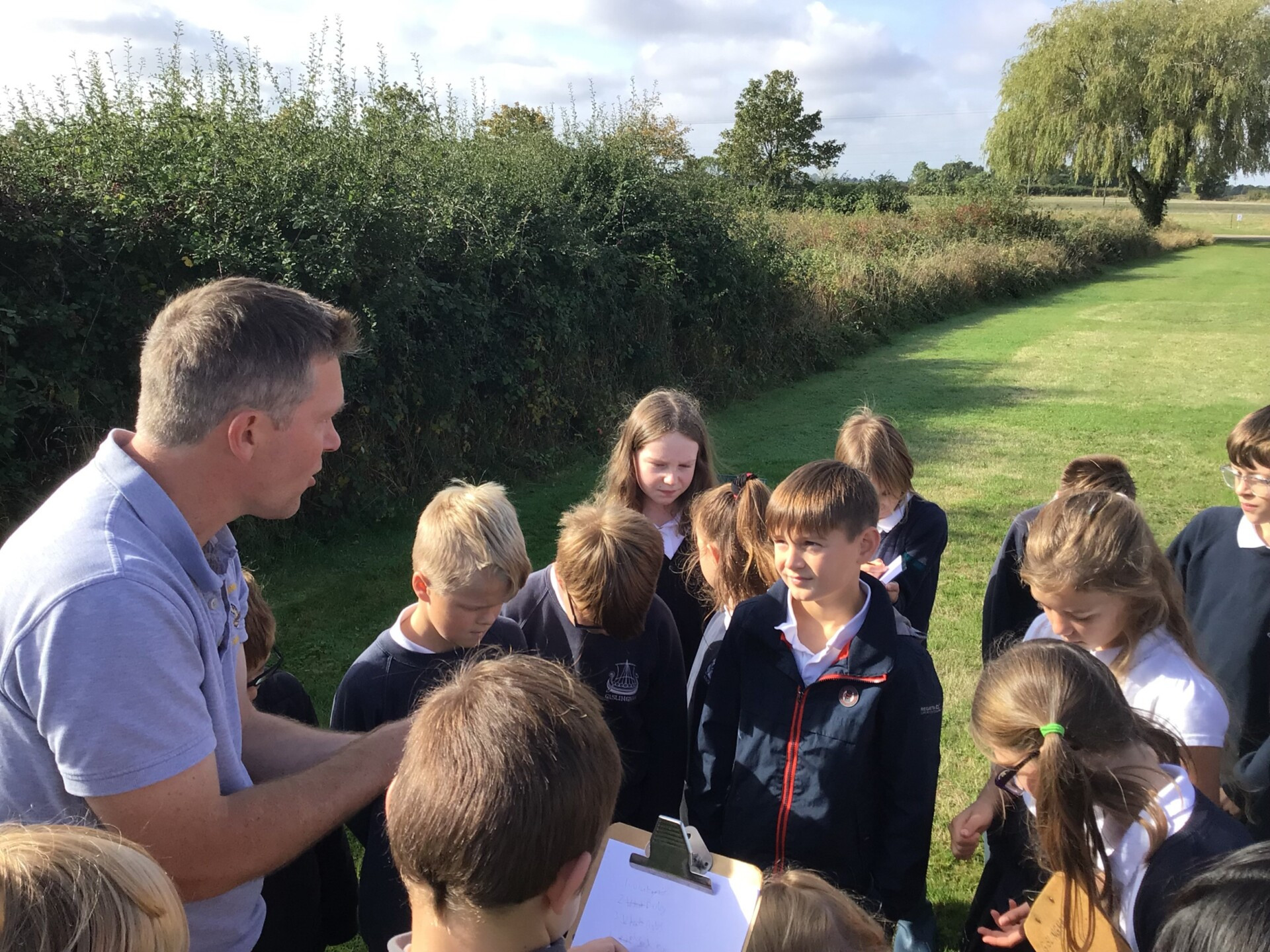News
AF Changemaker: maximising knowledge, minimising costs
31 October 2023
I am Patrick Barker of EJ Barker and Sons, farming 545 hectares of our own land in mid Suffolk. It’s good old heavy land with cereals, winter wheat, winter barley, spring barley, oil seed rape, herbage, grass seed and spring beans. Our farming ethos is to farm ‘properly’ which drives all the changes we make.
Our definition of ‘properly’ is to farm in a way that is modern, productive, streamlined, even intensive, but also in a way that is cost effective, efficient and sympathetic to the natural environment. We pride ourselves on having a farm bursting full of wildlife, as well as being a ‘proper’ farm.
As a business, we're very open minded. We are the AHDB strategic farm for the east, for cereals and oil seeds, and we're a LEAF demonstration farm. We've got four trials going on now: looking at beneficial predatory insects in arable crops with flowering margins; low input trials; we've got another trial water sampling and looking at the quality of water leaving the field drains, how much residual nitrogen is left in the fields and dissipating into ground water.
We’re generating an awful lot of information and as a demonstration farm, we know we've got a platform to show other farmers what’s possible, what can't be done, and it gives us the opportunity to improve as farmers as well. We absorb information like sponges, from other farmers, farming organisations, from other naturalists, from people who have a real love for the countryside, but also the people who live around us as well, who love seeing machinery working in the fields.
Six or seven years ago, we moved to a much lower input system. Low input in terms of fuel, moving machinery and moving the soil. We wanted to create much healthier soils on this farm.
By moving to a low soil disturbance system, we've created a system of the most appropriate tillage for the conditions. And at every point we're trying to do as little as possible, trying to spend as little money as possible, trying to move the ground as little as possible.
Our cost of production has decreased year on year. We're using less fuel, we're using less fertiliser, and we are spending a lot less time in the autumn on a tractor seat when historically it was plough, press, and power harrow.
We worked out that we are moving 5 million tonnes less of soil every year with a direct drilling system. The first meeting we had with the accountants after we started down this route, the accountant was asking us, “Are you sure we haven't forgotten a load of fuel here? Is there still some fertiliser sitting in the shed not accounted for?”.
No, we’re using less fuel and using less fertiliser. Our output is still the same, just we're able to grow crops for less money. We've seen huge strides forward in the quality and health of our soil (we now use earthworms per spade full as a metric of success).
Every year, our farmland wildlife numbers are increasing. 2022 was the best year ever for barn owls. We had five pairs of barn owls breeding on the farm. We're seeing more predators, we're seeing red kites. We've had ravens come in in the last couple of years, but also our indicator species of good habitat for insects, more and more butterfly and bee species every year. So, the farm is more productive but also has more wildlife in it as well.
By making sure that every time we put in an order, we're getting the best possible value from that. So, whilst we are using less fertiliser, we want to make sure that we're getting the best possible deal when we do buy it.
Using the AF accounts package and being able to download all my invoices straight into my Farmplan business manager programme saves me hours and hours, saves us the need to have a farm secretary, actually.
Being a Member of AF gives us efficiencies in the office, and efficiency out on the land too. For example, with Tank Scouts (that monitor our fuel usage and automatically reorder fuel when we need it) we don't get left without fuel.
We ring up and get competitive prices, for building materials, for mobile phones, having someone looking after electricity because electricity is an absolute minefield.
We have faith in the people sitting in the AF office, even the people I've never met face to face, knowing they're absolutely working with our best interests to help us be as streamlined as a business as possible.
I went to a conference soon after the Brexit vote and one of our top land agents in Suffolk stood up and said, “We're in for a decade of change”. We're now just about three years into that decade of change, and there's still a huge amount of change on the horizon.
If we have a business with as many different income streams as we possibly can then that will mitigate some of the risk in the future. We all sit around the table and we talk about what we want to do, where we want to get to.
We’re constantly retraining ourselves to see what could be ahead. We back our own judgment on what the pressures are going to be on farmers in three, five, ten years’ time.
We need to stay open minded, even about growing different things because new markets will open up. If we see an opportunity and we're brave enough to chase it, then the rewards will be there.